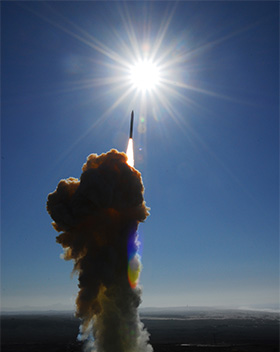In his commencement address to West Point graduates today, President Obama described his vision of a foreign policy that is founded not only upon a strong military but also by a web of alliances and partnerships that better position the United States as a global leader. Allies and partners, like those of the GCC countries, are critical to advancing US interests in a broader region that continues to experience political transitions and turmoil in key Arab states, Iran’s continuing pursuit of a nuclear program, and strategic competition among regional powers. To that end, US Secretary of Defense Chuck Hagel (and former Atlantic Council chairman) has just wrapped up a visit to Jeddah for the Gulf Cooperation Council defense ministerial conference – the first of its kind since 2008. The ministerial was meant as a follow-through on proposed efforts outlined in Manama last December, in which Secretary Hagel announced the United States’ plan to sell weapons to the GCC as a bloc, encouraging GCC members to create a military alliance, and proposing to better integrate the US missile defense systems with those of the GCC to enhance collective capabilities.
As part of the Brent Scowcroft Center’s day-long conference on global missile defense, Vice Admiral Kevin Cosgriff, former commander of the Fifth Fleet in the US Navy; Michael Eisenstadt, Senior Fellow and Director of the Military and Security Studies Program at The Washington Institute for Near East Policy; Bilal Y. Saab, Senior Fellow for Middle East Security at the Brent Scowcroft Center on International Security at the Atlantic Council; along with moderator Michele Dunne, Senior Associate at the Carnegie Endowment for International Peace, addressed the benefits and challenges of defense cooperation in the Arabian Gulf.
The panelists addressed issues of a lack of coordination between US and Arab states and among Arab states, waning American credibility in the Gulf, technical hurdles of integrated missile defense, and the nexus between politics and defense as factors that have impeded missile defense cooperation.
US leadership and technical assistance are vital components to developing integrated air and missile defense system in the Gulf. Cosgriff noted that there has been tremendous progress over the last decade, far beyond foreign military sales of discreet systems, but involves our expertise in training, tactical procedures, helping with decision delegation protocols, and information sharing over a network. But more than anything else, Cosgriff stated, the GCC needs to commit to integrated air and missile defense systems themselves.
The political component of missile defense was prevalent throughout the panelists’ remarks. Within a context of ongoing P5+1 negotiations over Iran’s nuclear program and a recent rift among GCC states, politics and regional dynamics are palpable obstacles to GCC defense coordination. Bilal Saab noted that problem with hardware is that it doesn’t operate in a political vacuum and that without closer political relations and greater trust among the Gulf partners, missile defense cooperation won’t go very far. Although the capabilities of US allies have increased, Iran’s capabilities have grown as well. It is in this context that Eisenstadt argued for a comprehensive approach that goes beyond active defenses and offensive options to include passive defense.
Despite these challenges, there have been successes. There is a common air picture of the entire peninsula due to successful air integration among Gulf and broader Middle East countries. There has also been tremendous success in the maritime domain, specifically with regards to fighting piracy and WMD trade. The US has also agreed to provide Saudi Arabia and UAE with stand-off munitions, which, as Saab claims, have reason to cause Iranians concern.
Technical hurdles of integrated missile defense are not insignificant, and the GCC states confront a political climate characterized by diverging threat perceptions and assessments, especially toward Iran. While there has been progress, the United States will have to continue to have an active role in engaging our partners to overcome rivalries and act more cohesively.
This panel was part of the Atlantic Council’s annual conference on the United States and Global Missile Defense which focuses on recent developments in missile defense architectures in Europe, the Middle East, and Asia and how global missile defense is likely to look in the year 2030.
